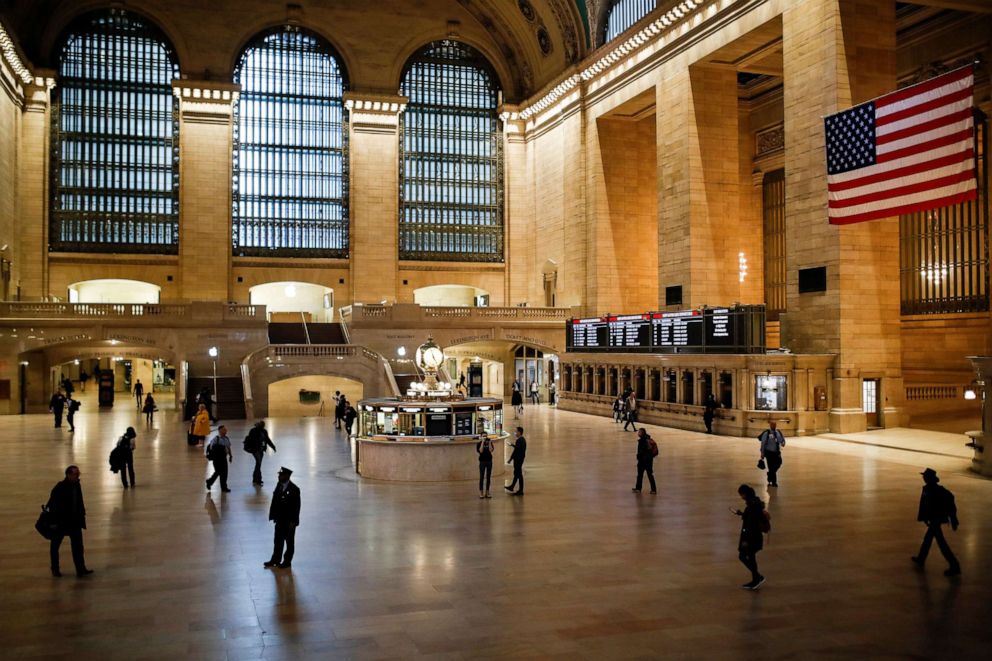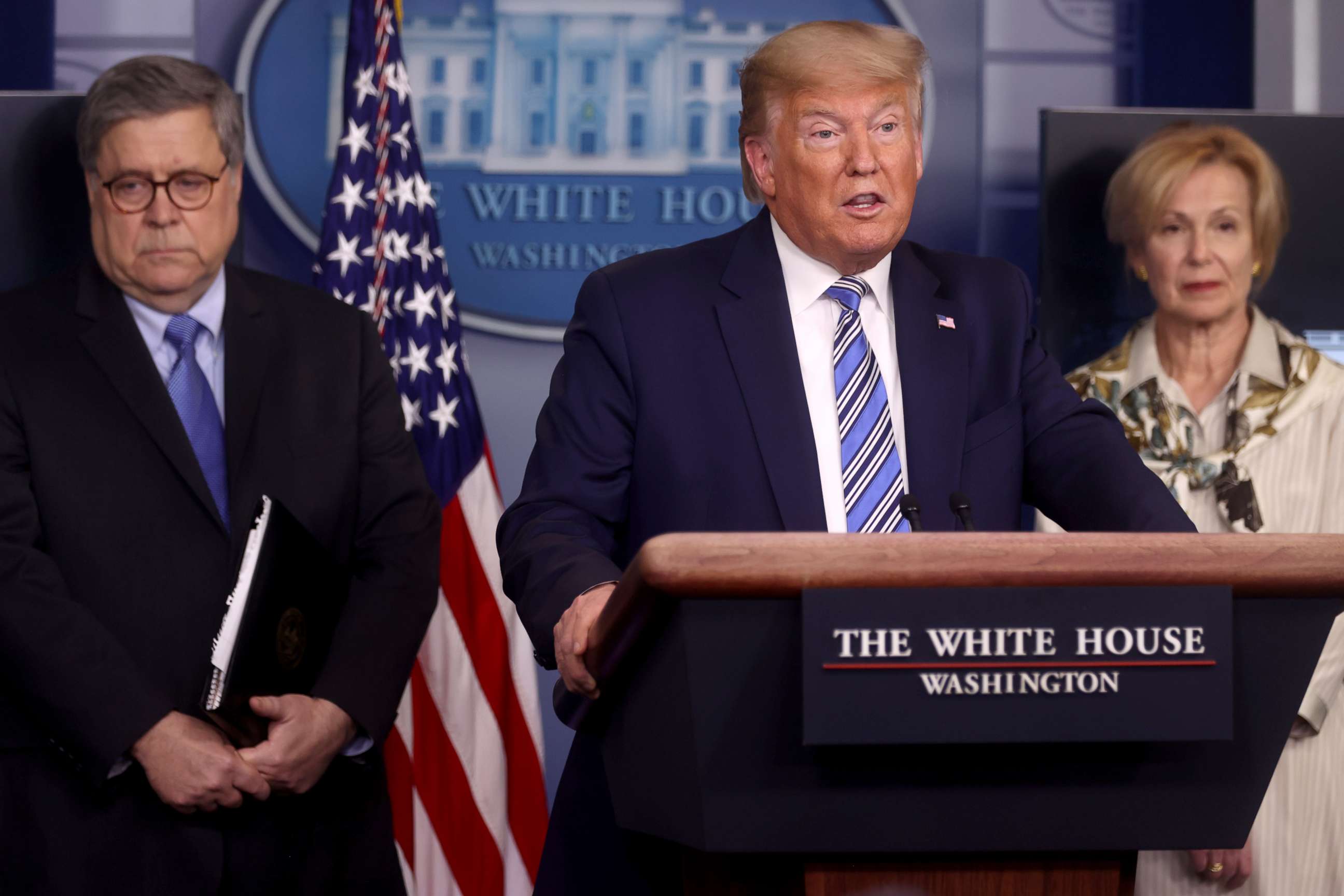What might Trump's relaxed social distancing guidelines look like?
There could be a gradual scaling back based on age and location, sources say.
The White House is considering a number of different options to loosen the administration's 15-day guidelines on social distancing designed to slow the coronavirus spread, including gradually scaling back the restrictions based on age and location, sources familiar with the discussions said Tuesday.
One option under consideration by the administration is recommending that people under 40 go back to work on a yet to be determined date, followed by those ages 40-50, and so on, according to sources briefed on the internal discussions who were not authorized to speak about the plans publicly. Sources say that the restrictions for those 60 and older and with underlying conditions could be significantly longer.
There are also discussions about gradually scaling back the restrictions based on location with advisers have also suggested limiting public transportation for those they recommend can go back to work, sources said.

Tune into ABC at 1 p.m. ET and ABC News Live at 4 p.m. ET every weekday for special coverage of the novel coronavirus with the full ABC News team, including the latest news, context and analysis.
While the discussions are still fluid and in the early stages, there are a variety of ideas are being floated on how to move forward - many of which go against the advise of the health experts who have publicly stated that the worst is yet to come. Tuesday is the ninth day of the 15-day effort.

President Donald Trump's former Homeland Security Adviser Tom Bossert warned on ABC's "Good Morning America" Tuesday that loosening the restrictions could fail if done the wrong way.
"I think everybody shares his frustration and his hope but what he needs to do is avoid second waves and reinfections. At this stage we've paid a very heavy cost in our economy and in our lives. To lose the benefit of it at this point by not sticking to our guns would be a really devastating decision," Bossert said. "Now, can we do it? That requires testing. It requires a more aggressive isolation and not in people's homes but somewhere they can be controlled, and it requires quarantining the people they come into contact with ..."
The president's guidance, which he unveiled a week ago and called for the public to follow for a 15-day period, advises people to avoid social gatherings of more than 10 people, not to dine in restaurants or bars, and to work from home whenever possible.
"America will again, and soon, be open for business. Very soon. A lot sooner than three or four months, that somebody was suggesting. A lot sooner," Trump said yesterday during the briefing. When pressed by reporters about whether lifting and/or softening the restrictions is the right thing to do -- the president insisted he could "do both" -- open up the country and at the same time watch the "hot spots" and the most vulnerable.
"But yeah, we will be doing two things and three things at the same time.But at the same time though, we will watch the hot spots," Trump said. "We will be taking care and watching closely the senior citizens, especially those with a problem or illness. We will be watching very closely. We can do that and have an open economy and open country."
What to know about coronavirus:
- How it started and how to protect yourself: coronavirus explained
- What to do if you have symptoms: coronavirus symptoms
- Tracking the spread in the US and Worldwide: coronavirus map




